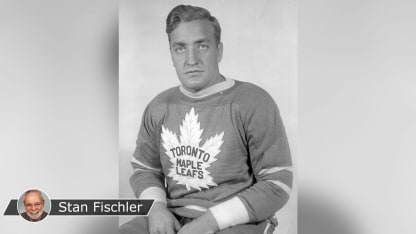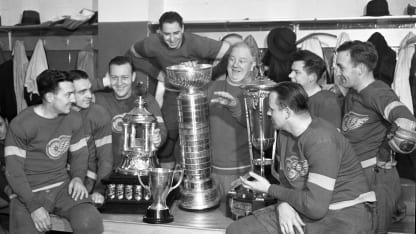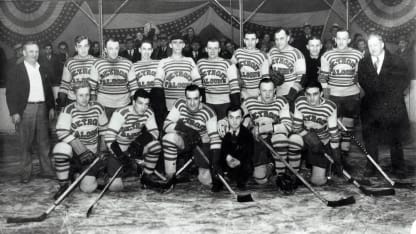Detroit Falcons during the 1931-32 NHL season at Olympia Stadium in Detroit. Bottom row, from left: Frank Carson, Larry Aurie, Alex Smith, stickboy Charlie Smith, Ebbie Goodfellow, Herbie Lewis. Top row, from left: trainer Honey Walker, Hec Kilrea, Reg Noble, Doug Young, Alec Connell, Carson Cooper, Johnny Sorrell, Hap Emms, trainer Bozo Bordeaux, Danny Cox, coach Jack Adams. Credit: Le Studio du hockey/Hockey Hall of Fame. Credit: Le Studio du hockey/Hockey Hall of Fame. Credit: Le Studio du hockey/Hockey Hall of Fame





